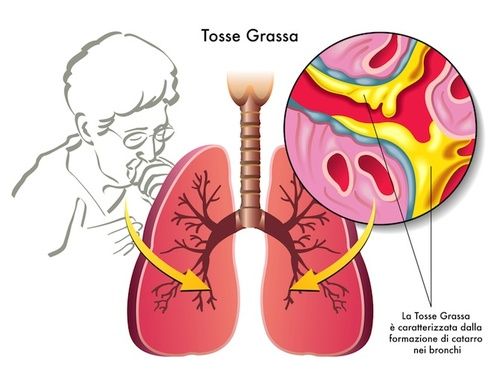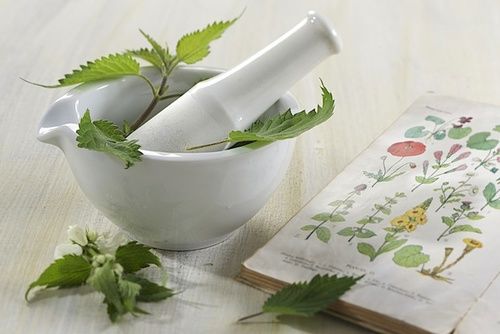Cough: symptoms, causes, all remedies
Coughing is a useful reaction to protect the lungs from inhaling a foreign body and helps to remove excessive bronchial secretions . It can depend on various factors and be accompanied by other pathologies such as fever, nausea and loss of appetite. Let’s find out better.
> Symptoms of cough
> Causes
> Diagnosis
> Cough treatment

Cough symptoms
Cough is often a reaction to an irritant. Dry cough tends to occur in association with characteristic symptoms such as fever , general malaise, sore throat , nausea, hoarse voice, and joint pain .
Sometimes it is accompanied by other symptoms, such as halitosis ( bad breath ) , bleeding gums , diarrhea , loss of appetite and a rash. In most people, a dry cough worsens during the night hours, gradually subsiding in the early morning hours.
Pneumonia, allergic reactions, pleurisy, tuberculosis, whooping cough, viral laryngitis can be some of the pathologies from which cough derives.
Causes
There are many triggers, which are divided into:
- exogenous causes , such as tobacco smoke, smog;
- mechanical causes , such as secretions, vocal strains, foreign bodies, hypertrophy of the tonsils.
Cough also characterizes asthma , allergic rhinitis, chronic bronchitis and pulmonary emphysema. The stimulus of cough is also generated by all laryngeal and tracheal infections, by diseases affecting the blood circulation and also following the intake of drugs (especially beta-blockers and Ace-inhibitors).
Diagnosis
Generally the symptoms are studied by the Otorino specialist for chronic cough, often after a pneumological evaluation and examination of the airways.
Chest auscultation clarifies basic diagnostic questions such as: Is the cough acute or chronic? Is there a possible respiratory infection, is there a fever? Is it seasonal, for example in spring? Are you associated with a respiratory embassy? Is there sputum and if so is it streaked with blood?
The expert also investigates the patient’s habits, the environment in which he lives, the use of drugs , any dyspnea or heart failure.
COUGH TREATMENTS
Nutrition in case of cough
Cough is a defense mechanism of the organism that allows it to cleanse the upper respiratory tract of irritating gases, secretions or foreign bodies and is also a consequence of inflammatory phenomena. It can be dry or productive with the elimination of various types of secretions.
In the event that the cough is due to inflammatory phenomena, it is useful to follow a natural diet that includes the reduction of milk and dairy products (which contribute to the production of mucus and phlegm), packaged foods, red meats and salami and finally sugars ( refined sugar and sweets).
In case of cough due to pharyngitis and tonsillitis , gargles of water and vinegar can be alternated with gargles of water and lemon . The former will have a decongestant and astringent action thanks to the salt while the latter will have a natural antiseptic and bactericidal action.
We have effective nutritional associations based on the type of cough.
Dry and irritated cough :
- Chamomile and lemon decoction : a carefully washed organic lemon is peeled to use its zest which is boiled in 250ml of water for five minutes together with the contents of a chamomile sachet. It is filtered and a spoonful of honey is added. The decoction has soothing properties for chamomile and honey, and antispasmodic properties for the essential oils of lemon peel.
Productive cough with catarrhal phenomena :
- Decoction of dried figs: 5 dried figs are boiled in 250ml of water for five minutes. It is filtered and drunk in small sips in case of cough and before going to sleep. The use of this decoction is to thin the mucus and calm both dry and catarrhal coughs.
- Onion with honey : cut an onion into horizontal slices to form several layers, sprinkle each layer with honey and let it rest for 24 hours. Then the honey that has dripped along the sides of the onion is collected and taken in teaspoons. Useful in expectoration.
Honey among the right foods for the treatment of coughs : discover the others

Herbal remedies
The plants used for the treatment of cough have anti-inflammatory , mucolytic, expectorant and balsamic properties. The antiseptic and antibacterial property, able to counteract possible infections, is due to the presence of essential oils.
They can be taken in tablets, capsules, syrups , mother tinctures, infusions and macerates.
- Plantain : ( Plantago lanceolata) the leaves are indicated for inflammation of the throat and respiratory tract in general, such as cough, bronchial catarrh, chronic bronchitis, hay fever, sinusitis, and for inflammation of the mucous membranes of the mouth and urogenital system ;
- Icelandic lichen : ( Cetraria islandica ) the thallus has strong mucolytic, decongestant and protective properties for the mucous membranes of the respiratory system, it is used as an expectorant and fluidifier of bronchial secretions in case of cough, pertussis and asthma. These properties are therefore useful for relieving bronchi and lungs and upper airways;
- Helichrysum : ( Helichrysum italicum ) the flowering tops are used in both allergic and infectious diseases of the respiratory system, as they favor the elimination of bronchial catarrh, attenuate the excessive spasms of asthma and allergic inflammations of the mucous membrane nasal, cough, acute and chronic bronchitis;
- Hyssop : ( Hyssopus officinalis) the flowering tops have balsamic and expectorant properties for the respiratory tract, therefore they are used to quell coughs and asthma attacks, as they thin and help eliminate phlegm especially from the bronchi and lungs.
- Drosera : ( Drosera rotundifolia ) the leaves contain droserone, a complex substance chemically similar to plumbagin, a naphthokinic derivative, which exerts a beneficial action as a calming agent for various types of cough , in particular irritating cough with bronchospasm, asthma, whooping cough , “Smoker’s cough”.
Among the gemmoderivati against cough is used that of the Hornbeam ( Carpinus betulus ), useful in respiratory syndromes, for its anti-inflammatory, anti-catarrhal, cough sedative and healing activity of the mucous membranes affected by inflammatory processes. The Viburnum ( Viburnum lantana ), exerts a specific action of pulmonary neurovegetative modulation and regulation, indicated to quell cough and inhibit bronchial spasm, in asthmatic forms of cough.
Finally, black honeysuckle ( Lonicera nigra ), is effectively used on inflammatory processes that tend to become chronic, in case of acute bronchitis, whooping or dry cough, asthma, flu, tonsillitis, laryngitis with hoarseness and aphonia.
You can learn more about all the herbal remedies for cough

Bach cough flowers
The respiratory tracts are the communication routes (exchange between the internal and external environment), where life enters, which will then be distributed by the blood throughout the organism.
Diseases of the respiratory organs translate the exchanges with the surrounding environment as regards our need for “air”, space and autonomy. They can signal a lack of zest for life, a loss of desire to go on living, or even a devastating sense of guilt.
- Wild rose is the remedy for those who have been disappointed in life and affections and do not want to run the risk of suffering again. He has lost motivation, interest, suffers from disappointed expectation, and gives up the struggle for life, showing resignation, apathy, flight, passive acceptance, fatigue, abulia, sadness, paralysis, surrender, indifference, lack of vitality.
- Honeysuckle : indicated for respiratory disorders and bronchitis that arise in those who live with regrets , memories, nostalgia for an idealized time with which they have an unsolved bond. He does not have experiences because he does not expect anything positive either from the present or from the future. He does not think he will find a happiness similar to the one he has already known. Rigid within, he is firm and stuck, and he loses life energy. The gaze is absent and the movements are slow. He has no desire or will, he is sad, melancholy, pessimistic, unable to rejoice, joke, laugh.
Traditional Chinese Medicine
Cough in traditional Chinese medicine must be treated through a therapy that aims to disperse external agents, control the anxious or irritable state, sedate the symptoms and improve the respiratory phase. Some important points are:
- FEI SHUI (shu point on the back of the Lung, 1.5 cun to the side of the spinous process of the 2nd thoracic vertebra) which tones and regulates the flow of the Lung;
- DA ZHUI (large vertebra, located below C7) which tones the qi of the Spleen;
- PI SHU (shu point of the back of the Spleen, 1.5 cun to the side of the spinous process of the XI thoracic vertebra), mobilizes the qi of the Spleen, regulates the flow of blood and dissolves humidity.
- LIE QUE (located on the radial shower, on the tendon of the arm-radial muscle) which stimulates the descent of qi .
Aromatherapy for coughs
The essences used to dissolve and eliminate the excessive secretion produced in the bronchi and lungs, and to sedate the cough, have balsamic , mucolytic and antibiotic properties . The applications of these oils are environmental diffusion , through fumenti (5-7 drops in hot water) or through the aromatherapy massage on the chest (3 drops in a neutral cream); finally the intake for internal use, 2-3 drops in a teaspoon of honey, 2-3 times a day.
- Thyme essential oil : helps to thin and expectorate the phlegm from the bronchi and lungs, relieves congestions in the oral cavity, throat, lung and nasal mucous membranes. For these properties it is one of the elective remedies against cough, bronchitis, whooping cough and in colds.
- Myrtle essential oil : well tolerated even by children, it has a mucolytic, expectorant and fluidifying effect on phlegm. It helps to decongest the inflamed respiratory tract, in case of colds, bronchitis, cough, even that of smokers, and in all chronic diseases of the respiratory system.
- Niaouly essential oil : its fields of application are related to typical winter ailments, such as cough, flu, cold, sore throat. It has a decongestant action on the bronchi and lungs, therefore it is indicated in all forms of cough, both oily and dry: in the first case it helps to eliminate phlegm, while in the second it helps to thin it, allowing its expulsion.
- Tea tree essential oil : its vapors can guarantee well-being for breathing and fight flu syndromes, characterized by the presence of mucus and phlegm, thanks to the fluidifying and expectorant action on the respiratory tract.
Homeopathic remedies
The general treatment that is adopted in homeopathy against dry cough involves the administration of:
- Aconitum 9 CH (5 granules, even every hour), useful in case of cough after a cold;
- Bryonia 9 CH (5 granules every 2 hours), dry, painful cough; Corallium rubrum 5 CH (5 granules every 2 hours), after exposure to wet cold, in case of violent explosive cough crisis.
Exercises for coughing
Having clarified the nature of the cough (whether dry or oily), it is advisable to immediately understand whether it is a respiratory tract infection or an allergic form or a symptom that detects an imbalance in the energy and functionality of the heart.
Better not to expose yourself to sudden changes in temperature or colds.
Cover your throat and chest in cold seasons . The environment in which you live must be well humidified : a relative humidity of 40-60% is the right one; for this reason there are various types of humidifiers on the market, including ultrasounds, which serve this purpose. Avoid the pool on acute cough days.
Also avoid active smoking and temporarily suspend sports and rest so that the body can resume training for good, whatever discipline you practice.
If you practice yoga, ask your guide for advice because he will be able to recommend suitable breathing exercises. However , pranayama should only be approached when the limbs, the nervous system and the lungs have been strengthened with the practice of asanas .
A hasty or incorrect practice can even worsen cases of cough, phlegm, asthma, hiccups, head or eye pain and nerve irritations. Slowness in learning, gradualness, concentration are essential aspects.






























+ There are no comments
Add yours